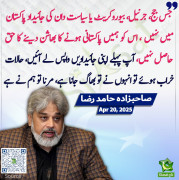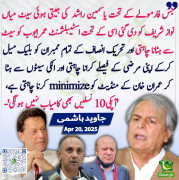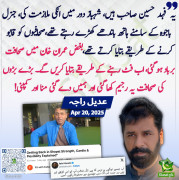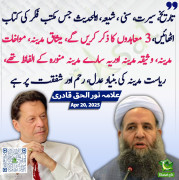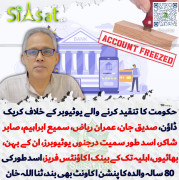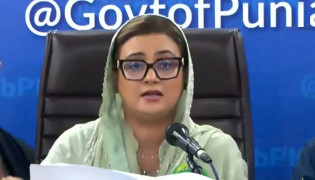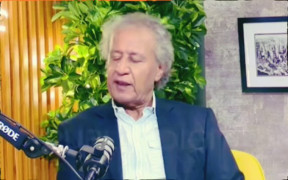NasNY
Chief Minister (5k+ posts)
You have a limited understanding of Islam you haven't read the books just little pickup info here and there. Everything is very well expalined if you choose to look.So what do you have to say about the Prophet and Khulafa then?
Since you don't do Namaz, Fast, zakat or Hajj, why do you want to bother others to stop. Just live your life in ignorance, i have no problem with it.
Prophet Muhammed did not want to confuse the people mixing Quran and hadith during the revelation of the Quran. so he temporary stopped it.
After the Revelation of the Quran was completed and some time has passed, he allowed the recording of History and Hadith for future generations.
Below a partial explanation.
Prophet (saws) taught his Companions (raa) these hadith formally in circles of knowledge. He spent a lot of time commanding them to convey his words, and he used to quiz the Companions also about what they had learned earlier. There was a group of people whose full-time job was to learn and record - commonly known as As-hab as-Suffah. Some of the famous Companions from this group include Abu Huraira, Jabir b. Abdullah, Mu'adh b. Jabal, Abdullah b. Mas'ud and others.
In their time, the primary way of recording something and propagating it was by memorizing it and oral transmission. Needing to write something down was seen as a weakness - these people had extraordinary memories. Secondly, another method they used to preserve the hadith was by practising them and making them a part of their lives. This is another effective way of preservation and propagation.
Initially, in the early stages of Islam, when the style and pattern of the Qur'an wasn't that clear yet, the writing down of hadith was prohibited so as to prevent them from being mixed with the words of the Qur'an. Later, the Prophet (saws) himself commanded Amr b. al-Aas to write down the hadith he was learning. Other instances of explicit permission and commands to write hadith include the hadith in Jami' at-Tirmidhi about seeking help from "the right hand" - i.e. to preserve knowledge by writing it down. The Prophet (saws) explicitly told Rafi' b. Khadij that he could write down the hadith he was learning and there was no harm in it. Anas (ra) narrated that the Prophet (saws) told them to preserve knowledge by writing it down. And as mentioned earlier, Amr. b. Aas was commanded to write hadith. He asked whether he should write down everything, whether the Prophet (saws) was content or upset, and the Prophet (saws) replied by saying yes, everything, nothing comes out of my lips except it is the truth.
The hadith were written down since the earliest times - they were only compiled later in the times of the Companions and later, the Imams. There is a hadith from Anas (ra) that says that around 60 men would gather to review the ahadith of the Prophet (saws). 'Umar and Abu Musa al-Ash'ari used to review hadith until the early morning. For example, Abdullah b. Amr b. Aas had a compilation of hadith with over 5000 of them called As-Sahifa as-Sadiqa, which the Prophet (saws) himself reviewed. Anas b. Malik had a compilation of over 2000, Jabir b. Abdullah over 1500, Aisha (ra) over 2000, and ibn Abbas and ibn 'Umar over 1500.
The first person to start an official compilation of hadith was Umar b. Abdul Aziz, just a few decades after the Prophet (saws) when he appointed the well-known muhaddith Ibn Shihab Az-Zuhri to oversee this project.
The fact is that the hadith were memorized systematically by the Companions and passed down just as the Qur'an was memorized and passed down.

